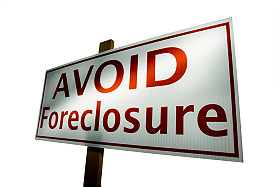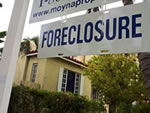Foreclosures
Foreclosure News Items
Short sales not short nor easy
by Broderick Perkins
A short sale can be a bargain buy, but first you'll have to navigate a minefield of UEDs (unimprovised explosive devices) that can kill the deal.

A National Association of Exclusive Buyer Agents (NAEBA) short sale survey underscores short sale buyers' need for both experienced professional representation and some level of familiarity with the deals.
A short sale occurs when the bank allows the sale of a home for less than the existing mortgage balance, typically, provided there's a qualified buyer in the wings.
Such homes are often held by home owners struggling with "underwater" mortgages -- mortgages with balances larger than the value of the home -- and want out without the more dire prospects of a foreclosure.
CoreLogic reports that 10.8 million, or 22.5 percent of all residential properties with mortgages were in negative equity positions at the end of the third quarter of 2010.
Short sales surged in 2010, thanks to financial incentives for sellers, servicers and lenders from the Obama Administration's Home Affordable Foreclosure Alternatives (HAFA).
NAEBA's survey of its members reveals the risks, potential deal-killing policy changes and costs associated with short sale acquisitions.
"Many consumers who are seeking a home buying bargain enter the short sale process without enough information about what can go wrong, and what that will cost them in both time and money," says Mike Crowley, 2011 President of NAEBA.
Some of the obstacles buyers face include:
• Time drain. Short sales can take four to six months or longer. Numerous conditions and factors are outside the buyer's control.
Even after a solid approval, the lender could require the buyer to close in a very short period, leaving little time to complete due diligence or beat back a foreclosure.
• Lender rejections. Even after the seller accepts your short sale offer, the lender can reject it in favor of a higher offer.
Sometimes that's because the seller wants to get rid of the house and may agree to any offer even if the bank won't approve it.
The rejection could also come because buyers, sellers and their agents never talked to someone with the authority to approve the sale.
What's more, the lender is not bound by a real estate contract between a short sale seller and buyer.
There may be more than one lender who needs to approve the sale. Even mortgage insurance companies and investors may get into the act.
• Cost factors. You can spend money on home inspections, improvements, title searches and legal aid only to end up empty handed, especially if the seller comes up with a loan modification or other deal.
Other costs can include back homeowner association, utility and tax payments. Buyers can lose earnest money deposits if the short sale goes to foreclosure.
Short Sales Coming on Strong as Lender Acceptance Grows
Struggling home owners awarded another $14 billion
Home owners getting paid for short sales
Government Ramping Up New Short Sale Program
Refinance at Today's Low Rates!

